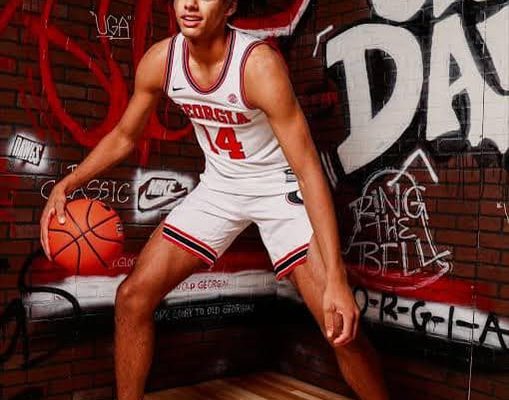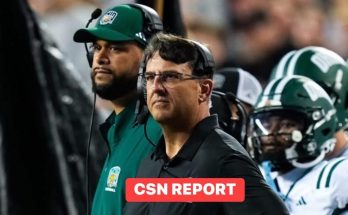The Georgia Bulldogs have been one of the most dominant programs in college football over the last few years, building a dynasty under head coach Kirby Smart that has produced national championships, top-tier recruiting classes, and a reputation for player development that churns out NFL stars on an annual basis. But as much as the on-field product has impressed, the off-field narrative continues to cast a troubling shadow over Athens. Recent developments surrounding player arrests and disciplinary concerns have once again raised eyebrows, not just among fans and media, but also inside college football circles nationwide. While it’s not uncommon for powerhouse programs to occasionally deal with isolated legal or disciplinary issues, the pattern emerging from Georgia is no longer an occasional misstep—it’s becoming a recurring theme, and one that threatens to undermine all the progress Smart and his staff have achieved on the field.
In the past eighteen months, the Bulldogs have found themselves consistently making headlines for all the wrong reasons. Multiple players have been arrested, cited, or investigated for a wide array of offenses ranging from reckless driving to more serious legal allegations. These issues have come at a time when the team should be enjoying its golden era, basking in the accolades of its on-field dominance and the momentum of recruiting success. Instead, the university’s name continues to be dragged into the public spotlight for matters unrelated to football. Perhaps most troubling is the nature of many of these incidents—several involve repeated offenses, behavior that suggests a culture in need of closer scrutiny, and a discipline structure that may not be adequately addressing accountability.
It would be one thing if these incidents were isolated or spread across a long timeline, but that is not the case. The 2023 offseason, for instance, was marred by a tragic car accident involving star lineman Devin Willock and a team staffer that resulted in both of their deaths. That crash, which also injured two others, led to a broader investigation into the program’s apparent issues with speeding and reckless driving. It became apparent that there was a concerning trend among players driving at dangerous speeds, with reports indicating that multiple athletes had previously been cited for similar behavior. And yet, in the months following that tragedy, new cases of excessive speeding involving other team members continued to emerge. This, more than anything, raised questions about the internal discipline policies in place and whether the consequences being handed down were actually effective deterrents.
In just the last several weeks, at least two Georgia players have again found themselves in legal trouble. These are not walk-ons or fringe contributors, but key figures within the program. One was arrested for reckless driving and street racing, continuing the pattern that had already been deemed a problem area by both the media and law enforcement. For fans of the team and those close to the program, it’s not only disappointing but alarming. How can players remain so tone-deaf after what transpired just over a year ago? And more importantly, how does the coaching staff allow these behavioral patterns to persist without significant institutional pushback?
The tension lies in balancing on-field performance with off-field conduct. In many powerhouse football programs, especially in the SEC, winning often shields programs from deeper scrutiny. Georgia is no different in this regard. When you are contending for national championships, bringing in top-3 recruiting classes, and sending double-digit players to the NFL Draft, there is an understandable—though not excusable—tendency for administrations to tolerate more than they should. But at what cost? The reputation of the school, the long-term development of the players, and even the safety of those around them become compromised when accountability is not enforced with unwavering consistency.
Kirby Smart has publicly acknowledged these issues. In press conferences and interviews, he has not shied away from admitting that the program must do better. He has spoken of internal efforts to address behavioral expectations and stressed that the program takes its standards seriously. But for all the coach-speak and public relations statements, the results remain underwhelming. Repeated infractions, continued negative headlines, and a sense that some players are simply not taking lessons to heart reflect poorly on both the coaching staff and the institutional structure supporting them. At some point, words must be backed by action. That action must include meaningful suspensions, a transparent accountability process, and a stronger focus on building character as intensely as they build muscle and football IQ.
The university also finds itself in a difficult position. Georgia is a flagship institution, not only in terms of athletics but also academics and state pride. It benefits enormously from the football program’s success—financially, socially, and in terms of national branding. That creates a tricky situation when the face of that success begins to attract negative attention. There is a real concern that donors, alumni, and fans may grow tired of reading about off-field failures, especially when they appear preventable. When a program starts to resemble a police blotter more than a sports page, even die-hard supporters begin to ask tough questions. This isn’t about a single arrest or a bad decision by a young student-athlete; it’s about a trend that reflects a systemic issue.
Furthermore, these developments are impacting Georgia’s recruiting pitch. While the Bulldogs continue to attract elite talent, some recruits and their families are reportedly beginning to ask questions about the culture in Athens. The narrative around Georgia’s player development, which once focused solely on NFL success and athletic advancement, is now interspersed with concern over behavior, discipline, and whether the program is truly preparing young men for life beyond the gridiron. Parents want to know their children will be safe, guided, and held to a high standard, not simply turned loose because of their athletic gifts.
The broader SEC landscape is also watching. Rival programs have started using Georgia’s off-field troubles as recruiting ammunition, subtly suggesting that their own programs offer a more stable environment or stronger support systems. In the highly competitive world of college football, especially in the Deep South, any perceived weakness is exploited. And make no mistake: consistent player arrests and disciplinary issues are being seen as just that—a weakness. It’s a crack in the armor of a team that has looked otherwise invincible between the white lines. While it might not show up on the scoreboard right away, it’s the kind of issue that festers internally, demoralizes locker rooms, and can ultimately become a factor in close games, especially when distractions multiply.
For Georgia to move forward, a cultural reset may be necessary. That doesn’t mean overhauling the entire coaching staff or changing the program’s identity. Rather, it means drawing a hard line in the sand and recommitting to values that transcend touchdowns and trophies. Leadership has to come not only from Kirby Smart but from within the locker room. Veteran players need to hold their teammates accountable. Position coaches must reinforce behavioral standards as seriously as they teach coverages or blocking schemes. Team meetings must include frank conversations about what it means to represent the “G”—both on campus and in the public eye.
There is still time for Georgia to right the ship. The program has enough goodwill, enough success, and enough institutional power to implement real change without collapsing under the weight of its mistakes. But the clock is ticking. Every new incident chips away at credibility. Every arrest leads to more uncomfortable questions. And every ignored warning could potentially lead to another tragedy—something no one in college football wants to see again.
College football is ultimately about more than winning games. It’s about building young men, creating futures, and representing a university with pride. The recent off-field issues surrounding Georgia football have cast a dark cloud over what should be one of the most celebrated runs in school history. Until that cloud is addressed with urgency and transparency, the accomplishments of the Bulldogs on the field will continue to be undermined by failures off of it. And that’s a reality no fan base—no matter how loyal—should be forced to accept.



